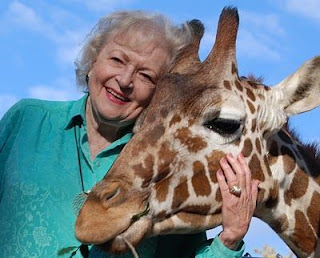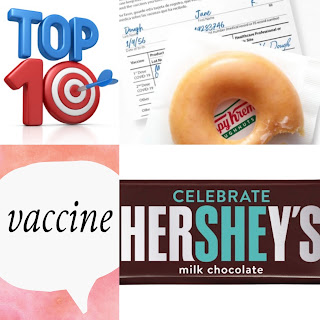Today, January 23, is a symbolic day in women's history, also known as herstory. On this date in 1849, Elizabeth Blackwell became the first woman to graduate from medical school and become a doctor in the United States. She graduated from Geneva Medical College in New York with the highest grades in her class and dedicated her life to treating the sick and helping other women to pursue careers in medicine. Her legacy continues because in 2017, for the first time ever, a majority of medical students in the United States were women.
To honor this achievement, I would like to welcome a special guest to my blog who has made her life's mission to help women improve their leadership skills. Shannon Rohrer-Phillips is a social entrepreneur, speaker, and producer who has worked with over 20,000 women over the course of her career. Shannon and I recently had a discussion about leadership, and highlights follow below her bio.
Shannon is the Founder of the annual Voice + Visibility Women's Summit in Sarasota, Florida, and Founder of The Bridge Builders DEI Solutions Training Program. She received her BA from Colgate University and an MSW from Smith College School for Social Work. She lives in Sarasota with her husband, two sons, and a growing family of pets. Shannon's TEDx Talk: Failure and Forgiveness in the New South, was delivered at University of South Florida Sarasota Manatee in November 2019, and can be watched at this link: https://www.youtube.com/watch?v=P0t0tEm-xgM&t=187s. Connect and follow Shannon on Twittter (@srpllc1), on Instagram (@Shannonrohrerphillips), and on her websites at https://shannonrohrerphillips.com and https://www.voiceandvisibilitywomenssummit.com.
QUESTION: You describe yourself on LinkedIn as "Social Entrepreneur, Producer, Speaker interested in all things: Female Leadership, Women in Business, Media, Film, Diversity, Equity & Inclusion, Community Building. Opportunity Architect. Producer. Stubborn Optimist. SNL Enthusiast. Mother TEDx Speaker." Some have said that the reason few women get ahead in corporate America is that they are denied entry into the "pro-bro" culture. When men are assertive, they are respected, but when women are assertive, they are not taken seriously. How can we move forward and achieve gender equality?
SHANNON ROHRER-PHILLIPS: Great question and great timing. I published an article called "WOMEN TAKE THE WHEEL, 10 WAYS TO SLAY GENDER DISCRIMINATION." I think about this phenomenon of what holds women back and how to remove barriers for women to increase their assertiveness, respect, and pay a lot.
I see the path forward for gender equity as an inside-out job. Internally, it requires us to do an enormous amount of work establishing our goals, boundaries, and seeking mentors. We must see ourselves as leaders, not vicitims. Externally, we must demand that companies, communities, and partners step up and commit to gender equity as well. This can be done by demanding equal pay, policy work, shared domestic work, and inclusive and intentional allyship.
Historically, women were forbidden economic and social independence in a myriad of forms. The realities of 2021/2022, espcially the data on the impact of the pandemic on women have revealed that women continue to shoulder the majority of the family caregiving in addition to their professional responsibilities. The time is now to elevate our voices and choose leadership, not ask for it.
Check out the article here:
https://shannonrohrerphillips.com/wp-content/uploads/2021/08/Women-Take-The-Wheel.pdf
QUESTION: When President Obama introduced Janet Yellen as the new Federal Reserve Chair in October 2013, he said, "Janet Yellen is a proven leader who knows how to build consensus, the kind of person who makes everybody around her better." President Biden remembered this when he nominated her as the first woman Secretary of the Treasury, and today, she serves as the 78th Secretary of the Treasury. What three characteristics do you think are necessary to create a consensus-builder?
SHANNON ROHRER-PHILLIPS: Our country is incredibly divided right now. Consensus building, and buildng bridges has never been more important. The three characteristics I see as essential for consensus building are:
(1) Identify the "Big Idea" and objective as a group.
(2) Demonstrate strong listening skills and validation of all opinions and ideas.
(3) Negotiate an agreement and invite all to implement.
QUESTION: What is your favorite quote from former Supreme Court Justice Ruth Bader Ginsburg, and why?
SHANNON ROHRER-PHILLIPS: "Fight for the things you care about, but do it in a way that will lead others to join you." We achieve power and progress in numbers! I've always believed that effective work for women's equality and diversity, equity and inclusion means we must learn how to compromise, show humility, listen, resist the temptation to be right, and find ways to connect around similarities. We are seeking progress, not perfection, on our path toward equality.
TWEET THIS: We are seeking progress, not perfection, on our path toward equality. -@srpllc1 #EqualityforWomen #EqualPayforEqualWork #DebbieLaskeysBlog
QUESTION: The world has changed dramatically over the last few years due to the covid pandemic as well as the #BlackLivesMatter movement and fallout from the Harvey Weinstein and Bill Cosby trials. As a result, how do you think workplaces can implement DEI (Diversity, Equity, and Inclusion) initiatives and actually implement genuine change?
SHANNON ROHRER-PHILLIPS: In my opinion, all employers must begin with a current DEI climate Survey and re-administer them frequently. This allows teams to see where their employees, stakeholders, and organization stands with all forms of DEI including race, gender, ability, age, language, religion and more.
Once that data is reviewed, leadership must commit to assembling a DEI Board, Committee or task force that creates a strategic DEI plan with benchmarks and deliverables. Solutions that yield DEI success in organizations include: employee training, pay equity assessments, diversifying talent pipelines, diversifying supply chains, leadership embrace of DEI, marketing and messaging, reaching out to new customer markets, and demonstrating inclusivity in the core values of the organizational culture.
People need to feel valued for who they are in their workplace. The DEI Board/Committee must ensure that they not only track progress and outcomes, but create a safe and supportive place for all staff to process their obstacles, challenges, and achievements.
TWEET THIS: People need to feel valued for who they are in their workplace. -@srpllc1 #EmployeeExperience #DEI #DebbieLaskeysBlog
QUESTION: Which three leaders inspire you, from business or history, and why?
SHANNON ROHRER-PHILLIPS: Here are my three:
(1) Michelle Obama: As the first African-American First Lady, a best-selling author, attorney, mother, education champion, and healthy family advocate, her self-confidence is radiant and has inspired women and girls across the globe.
(2) Nely Galan-Nely: She is a media mogul and former President of Entertainment for Telemundo. Her book Self Made is a call to action for all women to seek economic empowerment. My favorite Nelyism is: "To be Chosen, Choose Yourself First."
(3) Gloria Steinem: I was deeply inspired by Gloria's book The Revolution From Within as a child. Her approach and lifelong dedication to intersectional feminism, community organizing, and women's rights blazed the trail for all of us.
My thanks to Shannon for sharing her inspiring leadership insights and for appearing here on my Blog.
Image Credit: Shannon Rohrer-Phillips and Debbie Laskey.





